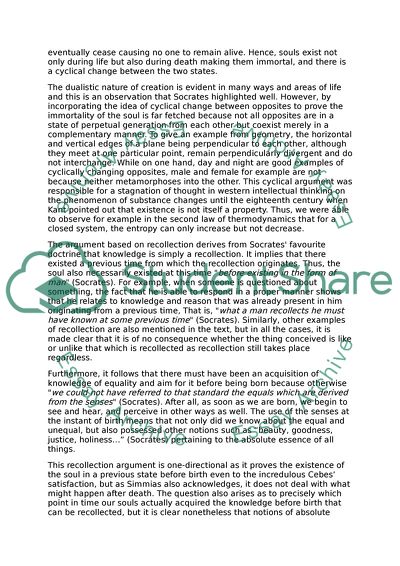Cite this document
(Socrates Four Arguments for the Immortality of the Soul in the Phaedo Coursework - 11, n.d.)
Socrates Four Arguments for the Immortality of the Soul in the Phaedo Coursework - 11. https://studentshare.org/philosophy/1728676-philosophy
Socrates Four Arguments for the Immortality of the Soul in the Phaedo Coursework - 11. https://studentshare.org/philosophy/1728676-philosophy
(Socrates Four Arguments for the Immortality of the Soul in the Phaedo Coursework - 11)
Socrates Four Arguments for the Immortality of the Soul in the Phaedo Coursework - 11. https://studentshare.org/philosophy/1728676-philosophy.
Socrates Four Arguments for the Immortality of the Soul in the Phaedo Coursework - 11. https://studentshare.org/philosophy/1728676-philosophy.
“Socrates Four Arguments for the Immortality of the Soul in the Phaedo Coursework - 11”. https://studentshare.org/philosophy/1728676-philosophy.


